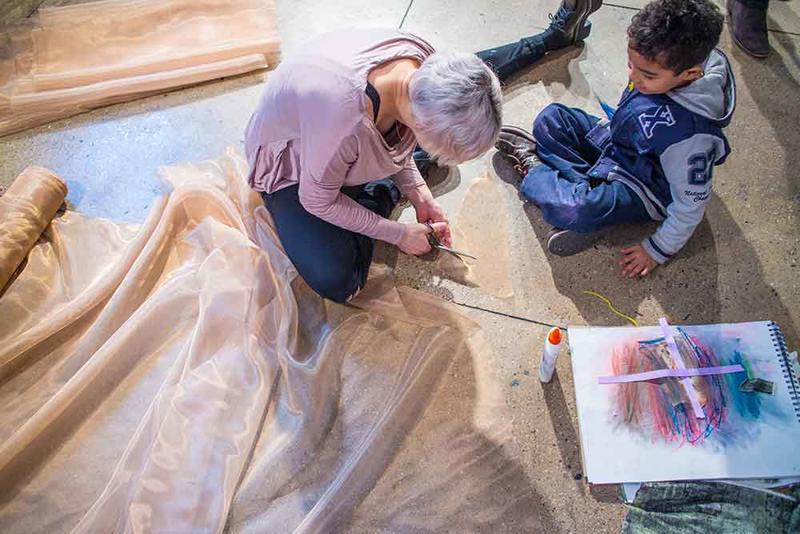Fil Doux Textiles is bringing new meaning to multipurpose fabrics. It has launched a new sustainability initiative, Fil Doux for the Arts, which donates the company’s excess materials to young artists and community volunteers through various nonprofits. So far, the brand has partnered with two New York City organizations: Time In and buildOn.

“Fil Doux Textiles has always been committed to keeping the planet healthy by
reducing excess energy usage and waste,” said Leo Novik, the company’s CEO. “We use sustainable operations at our mills. Fil Doux for the Arts is the next step in completing the cycle for reuse of materials.”
The company partnered with arts organization Time In on a workshop for children from underserved communities. The students and their mentors from the nonprofit used the company’s fabrics to create art pieces and costumes for the opera The Marriage of Figaro. “Witnessing how an arts education can empower children, provide a source of confidence, and encourage self-expression; that is life-changing for everyone involved,” said Audrey Pincus, creative director of Fil Doux Textiles. “I hope that others are inspired to give back and contribute to communities that deserve better.”
BuildOn provides high school students with opportunities to serve their neighborhoods through community service projects. With the textiles donated by Fil Doux, the students made blankets, mats and pillows for the homeless.
Fil Doux also works to make a more positive environmental impact through their production processes and materials. It uses wind power for its mills, recycles dye water, and uses excess fabric for packaging. One of the proprietary products the company developed is Vinylife, an eco-friendly upholstery fabric that is just as durable as traditional vinyl but is made with natural enzymes that make it more biodegradable.




























